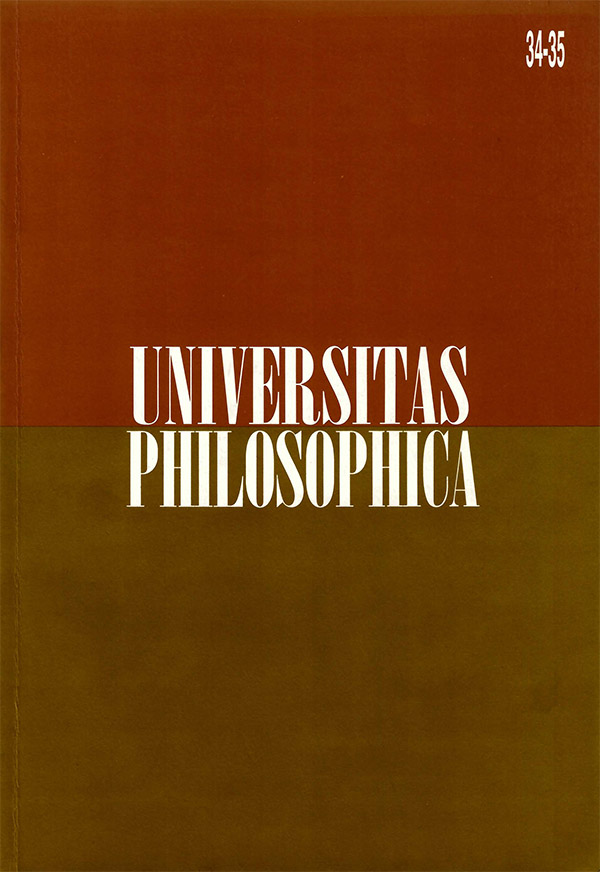Abstract
This paper intends to develop some of the main aspects of Nietzsche's contribution to the enlargement of the concept of reason and to the rise of a philosophy of experience that is making it's way in contemporary thought. In Nietzsche's work, the kantian breed criticism turns in to genealogic hermeneutics that implies, on one hand, the demand of a radical criticism of several of the basic concepts of philosophy such as reason, truth, lie, life, on the other hand, the foundation of new parameters of interpretation such as the body, the topological nature of language and the creative instinct, considered as the most radical force within the human being. This paper focuses on Nietzsche's criticism of metaphysic truth from the perspective of the value of life and it's tragic sense. In the same order of ideas, this paper will state a few elements that are necessary to propose a truly rational experiential thought that may overcome epistemology and also go beyond the "conflict of the interpretations".
This journal is registered under a Creative Commons Attribution 4.0 International Public License. Thus, this work may be reproduced, distributed, and publicly shared in digital format, as long as the names of the authors and Pontificia Universidad Javeriana are acknowledged. Others are allowed to quote, adapt, transform, auto-archive, republish, and create based on this material, for any purpose (even commercial ones), provided the authorship is duly acknowledged, a link to the original work is provided, and it is specified if changes have been made. Pontificia Universidad Javeriana does not hold the rights of published works and the authors are solely responsible for the contents of their works; they keep the moral, intellectual, privacy, and publicity rights.
Approving the intervention of the work (review, copy-editing, translation, layout) and the following outreach, are granted through an use license and not through an assignment of rights. This means the journal and Pontificia Universidad Javeriana cannot be held responsible for any ethical malpractice by the authors. As a consequence of the protection granted by the use license, the journal is not required to publish recantations or modify information already published, unless the errata stems from the editorial management process. Publishing contents in this journal does not generate royalties for contributors.


